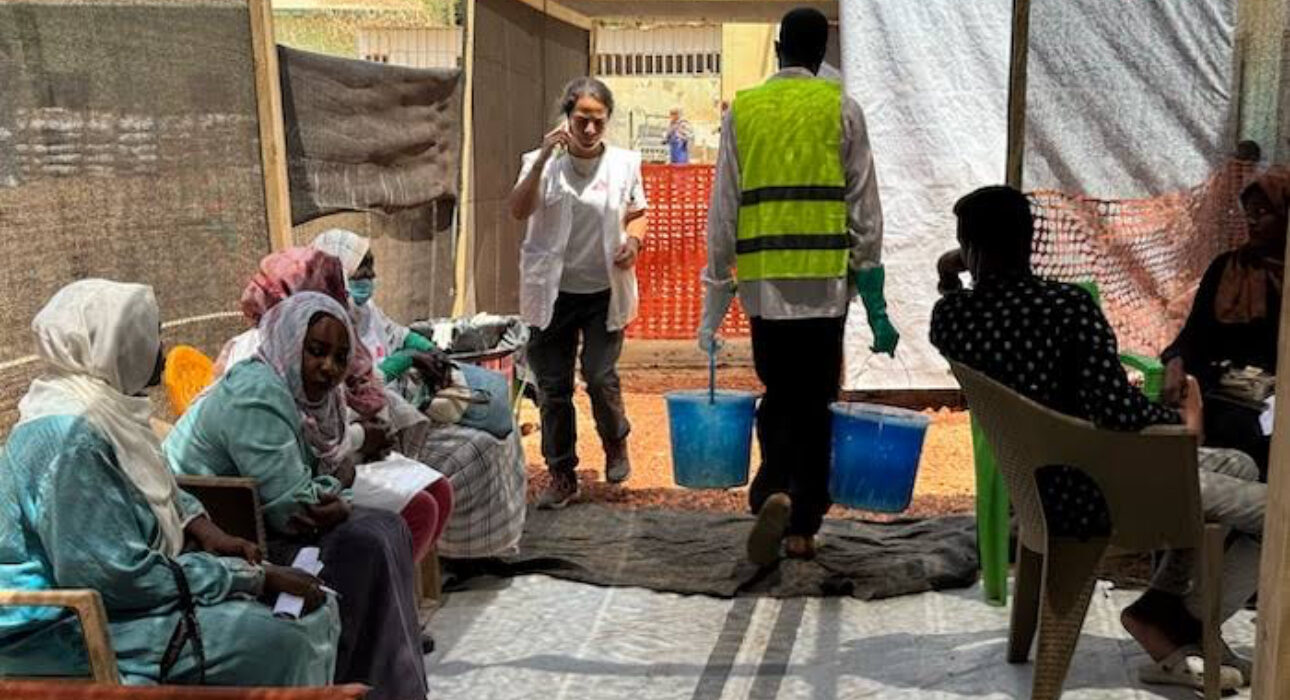WHO Warns of Cross-Border Cholera Outbreak as Sudan Crisis Escalates

The World Health Organization (WHO) has warned that Sudan’s worsening cholera outbreak could soon spread into neighboring Chad, where hundreds of thousands of refugees are living in overcrowded, unsanitary camps.
The warning comes amid ongoing conflict in Sudan that has devastated public health systems and forced millions from their homes.
Sudan is in the grip of one of its worst public health emergencies in recent memory, with cholera cases surging across 13 of its 18 states. More than 1,800 people have died from the disease since the beginning of the year, with thousands more infected.
The worst-affected regions include Khartoum, Gezira, and large parts of Darfur, where the health infrastructure has all but collapsed due to relentless fighting between the Sudanese Armed Forces and the paramilitary Rapid Support Forces (RSF).
The deteriorating situation has left millions without access to clean water, sewage systems, or functioning hospitals. In White Nile State alone, over 2,700 cases have been recorded, with at least 65 deaths, including many children. Aid agencies report that patients are being treated in makeshift facilities with limited resources, and ongoing violence is hindering efforts to reach communities in need.
Now, health officials fear that the crisis may cross Sudan’s borders. WHO officials say that suspected cases have already appeared near Geneina, a Sudanese town just 10 kilometers from the border with Chad.
With more than 300,000 Sudanese refugees currently sheltering in camps in eastern Chad—many of which lack clean water and basic sanitation—the risk of an outbreak there is growing by the day.
“Overcrowded conditions, poor sanitation, and the onset of the rainy season have created the perfect storm for cholera to spread,” said Dr. Shible Sahbani, WHO’s representative in Sudan. “Unless urgent action is taken, we are likely to see cross-border transmission into Chad and possibly beyond.”
The WHO is calling for the immediate scaling up of humanitarian access and medical intervention in affected regions. Among the priorities are establishing humanitarian corridors, implementing mass oral cholera vaccination campaigns, and restoring basic water, sanitation, and hygiene (WASH) infrastructure.
A recent vaccination campaign in parts of Khartoum and surrounding states has helped lower the fatality rate in some areas, but health workers say these efforts are not nearly enough without greater access and security. The WHO is also working with local and international partners to distribute water purification tablets, monitor water quality, and provide rehydration therapy and antibiotics in hard-hit communities.
The Sudanese cholera outbreak is part of a wider surge in cases across Africa. In 2024 alone, the continent reported over 800,000 cases and nearly 6,000 deaths from cholera, a disease that is preventable with clean water, vaccines, and timely treatment. In many regions, however, war, displacement, and climate-related flooding have undermined public health infrastructure and made it difficult to respond.
In the case of Sudan, WHO and aid agencies are urging the international community to act quickly—not just to stop the outbreak, but to prevent it from becoming a regional crisis. Without immediate support, they warn, the situation in Chad’s refugee camps could become “a public health catastrophe.”
As the rainy season sets in and displaced populations continue to cross borders, the world is watching a preventable crisis grow in scope and urgency.









